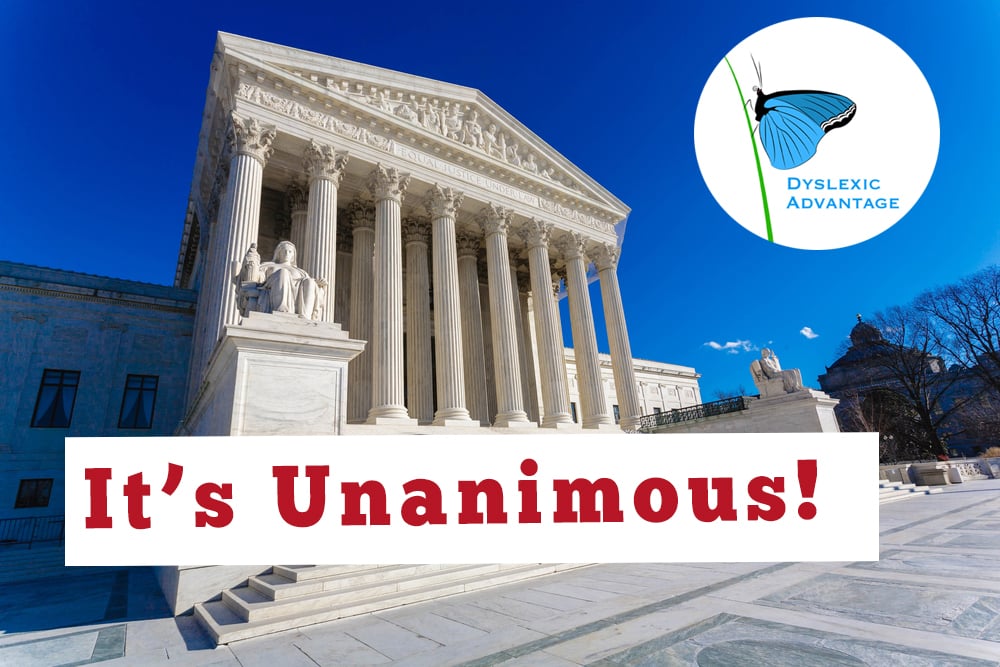The U.S. Department of Education has just released guidelines in light of the recent unanimous US Supreme Court Decision Endrew F. vs. Douglas County School District. That decision interpreted the scope of FAPE (free appropriate public education) to mean that a...
Dyslexic Master Montessori Teacher ALISON AWES [Premium]
I recently had a chance to talk with Master Montessori Teacher Alison Awes who is based at the Montessori Training Center of Minnesota. Alison is dyslexic herself and she has written about how Montessori instruction can support dyslexic students. Alison is also trained in Orton-Gillingham Level1. Like the Orton-Gillingham method, the Montessori approach was created by a physician working with special education students. I knew about Montessori because both our children attended Montessori preschools and we liked many aspects of the educational approach, including self-directed learning, multi-age classrooms, and well-designed hands-on materials. I was interested in hearing about Alison’s experiences because she attended a Montessori school herself until the age of 12 and then transitioned to a traditional middle school. She only discovered that she […]
Surviving IEP Season [Premium]
IEP season usually runs from late March through early June, and it’s a time when parents and teachers meet with the IEP team to assess the past year’s progress and also plan for changes that should take place for the upcoming year. Be aware, too, that we have a new Supreme Court decision that is holding school districts accountable. Here is an important excerpt from the Endrew F. vs. Douglas County School District decision: “The IEP must aim to enable the child to make progress. After all, the essential function of an IEP is to set out a plan for pursuing academic and functional advancement… When all is said and done, a student offered an educational program providing ‘merely more than de minimis’ [trivial or […]
The Power of Different – Exclusive Interview
Dr. Gail Saltz has a hit book on her hands, and it's called The Power of Different. In addition to being a professor of psychiatry at Columbia University, she grew up with a brother who'd win a Nobel Prize. Gail was kind enough to talk to her about what she learned...
GREAT Supreme Court Decision – Schools Must Provide More Support for Students with Disabilities
A GREAT Supreme Court Unanimous (8-0) was handed down that states that public schools must provide more than 'de minimus' or the bare minimum to benefit students with disabilities. The fact that some school systems (in this case, Douglas County) were fighting the...
Let Them Listen – Audiobooks and Dyslexia [Premium]
Let Them Listen! “The objective of the present research study was to understand what benefits the use of audiobooks (both school-books and books of various genres, recorded on digital media) could bring to preadolescents and adolescents with developmental dyslexia. Two groups, each consisting of 20 adolescents, were compared. The experimental group used the audiobooks, while the control group continued to use normal books. After 5 months of experimental training, the experimental group showed a significant improvement in reading accuracy, with reduced unease and emotional–behavioural disorders, as well as an improvement in school performance and a greater motivation and involvement in school activities.” – Milani et al., Dyslexia (journal) It’s surprising how often we continue to hear that dyslexic students are denied the use of audiobooks […]
WHEN A UNIVERSITY IS DYSLEXIA-UNFRIENDLY [Premium]
Despite recent advances in dyslexia-friendly policies and statements in K-12 and higher education, reports of dyslexia-unfriendly and discriminatory practices are more common than anyone would like to mention. At the university level, rarely is there any education for faculty and staff about the needs of dyslexic and LD students on campus, so it should not be surprising that many professors will not understand why accommodations are necessary for dyslexic students. They may actively discourage students from obtaining such accommodations although it is against federal law. As we have recently reported, US Department of Justice regulations requires that private colleges give “Considerable weight to the documentation of past accommodations, modifications, or auxiliary aids or services received in similar situations” and not require additional burdensome re-testing. […]
Dyslexia and Medical School – AMA Journal of Ethics [Premium]
In an important article published in the AMA Journal of Ethics, physicians call for mandatory dyslexia training for medical school faculty. The article presents the case of a 1st year dyslexic medical student who excelled in college and in clinical research, but who is conflicted about whether to disclose his dyslexia to faculty and fellow classmates because of his concerns that it would negatively impact his “education, performance, and reputation.” The writers comment: “Given the scientific progress in understanding the epidemiology, cognitive basis, and neurobiology of dyslexia, it is surprising that ignorance of the condition persists; such ignorance continues to result in faculty misperceptions of dyslexia. For example, the very common and physiologically based symptom of slow reading in dyslexia can be misinterpreted as slow […]
Surviving Parent Teacher Conferences [Premium]
Parent-Teaching Conferences can be stressful for both parents and teachers. Keep your eye on the big picture, think strategically, and work toward a positive year for your student in the classroom. Often the amount of time you have with the teacher is quite short because of the total number of students involved. As a result, plan on showing up to see how the beginning of the year is progressing and focus on finding solutions if your students is lagging behind or having difficulties. If you’ve purchase Dyslexia, Dysgraphia, or Dyscalculia Teacher cards, now is a good time to use them. Quick Tips for Parent Teacher Conferences If Your Student is Dyslexic: Make a Positive First Impression – This may be the first time your meeting this teacher and she […]
How To Become Invincible – Sort Of
Well, maybe not invincible, but you know what we mean. There's a new idea circulating among business leaders and entrepreneurs. It's not mindset or grit, but of course those are important. It's rejection therapy. Some people think part of the reason for higher than...
October is National Dyslexia Awareness Month – What Will You Do?
It's hard to believe the Dyslexia Awareness Month was only officially recognized by US Congress lin 2015. Although 120 years have passed since Pringle Morgan noticed the intelligence and reading discrepancy in a student, we are still only in our infancy in terms of...
Q: How Can My Student Be Tested for Dyscalculia ? [Premium}
The last decade has seen a great advance in the biological understanding of dyscalculia, or math disability. The DSM V groups a specific learning disorder in math (315.1) under Specific Learning Disability along with impairment in reading (315.000) and impairment in written expression (315.2). The NIH defines dyscalculia as a condition contributes to “difficulty understanding arithmetic concepts and doing such tasks as addition, multiplication, and measuring.” It is important to identify dyscalculia, because an unrecognized LD can contribute to cycles of academic underachievement, secondary behavioral and emotional issues, and obstacles to further academic or workplace advancement. With the recent addition of high-stakes exams like the calculator-free section of the new SAT, it is even more critical that students with dyscalculia be identified. The DSM V definition includes the […]


![Dyslexic Master Montessori Teacher ALISON AWES [Premium]](https://www.dyslexicadvantage.org/wp-content/uploads/2017/09/Screen-Shot-2019-08-31-at-4.00.40-PM.jpg)
![Surviving IEP Season [Premium]](https://www.dyslexicadvantage.org/wp-content/uploads/2017/05/Screen-Shot-2017-05-30-at-9.53.04-AM.png)


![Let Them Listen – Audiobooks and Dyslexia [Premium]](https://www.dyslexicadvantage.org/wp-content/uploads/2017/02/reading-audiobooks-our-shutterstock-scaled.jpg)
![WHEN A UNIVERSITY IS DYSLEXIA-UNFRIENDLY [Premium]](https://www.dyslexicadvantage.org/wp-content/uploads/2017/01/element5-digital-jCIMcOpFHig-unsplash-scaled.jpg)
![Dyslexia and Medical School – AMA Journal of Ethics [Premium]](https://www.dyslexicadvantage.org/wp-content/uploads/2016/11/Screen-Shot-2019-09-03-at-3.44.07-PM.jpg)
![Surviving Parent Teacher Conferences [Premium]](https://www.dyslexicadvantage.org/wp-content/uploads/2016/10/parent-teacher-conferences.jpg)
















